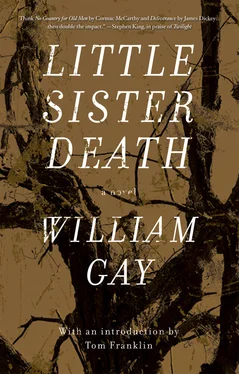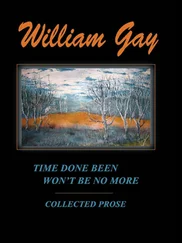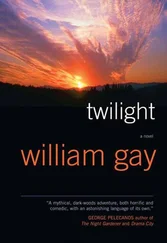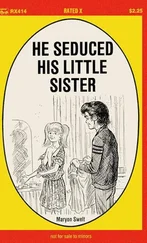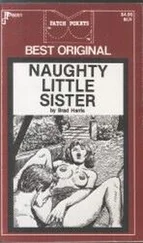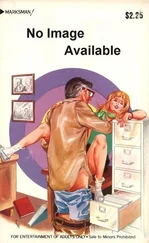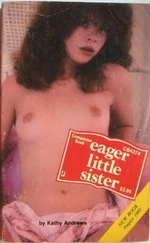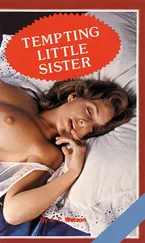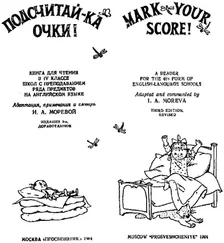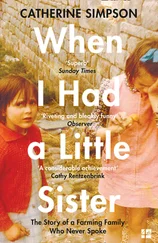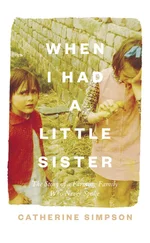Bell was a stern and autocratic man who had been able to keep the news of the disturbances confined within his family. But as soon as he confided in others, the cat, or whatever the hell manner of beast it was, was out of the bag and gone.
The self-styled investigators soon determined that there was an intelligence behind the phenomenon. It would respond to knocks and answer questions: one knock for yes, two knocks for no.
Odd as this may be, it did not set a precedent. A similar case had taken place in Maine in 1800. It happened again in Surrency, Georgia, and again in 1848 in Hydesville, New York, to a family named Fox. The Foxes were more amenable to this sort of thing, and within months they were holding séances and playing the ectoplasm circuit, giving birth to the great Spiritualist movement of the nineteenth century.
The witch — they had begun to call it this almost by default; no noun seemed adequate — thrived under all the attention she was getting. At night the yard would be full of wagons and buggies, the house full of folks putting the manifestations to the test. Apparently Bell turned no one away: he was hoping somebody could figure out all of this and put it to rest. So word spread, and the witch became a source of entertainment. Recreation was in short supply in Robertson County in 1817, and this was better than a pie supper, a church social, a cornhusking — as long as you could go home when the show was over and leave it where it was.
The Bell family couldn’t do this. The witch seemed to have moved in to stay.
Then she developed a voice. First a sibilant whisper, than a strangled sort of gurgle. Eventually she began to sing gospel songs and to speak. From contemporary accounts (and there are a lot of them), the voice was very odd-sounding: metallic and somehow mechanical, it did not sound much like a human voice at all. From today’s perspective it seems the witnesses were trying to describe a computer-generated voice, perhaps like the one in your telephone that asks you to punch a number for more information.
And information was what they wanted. What are you? Where do you come from? What do you want? they asked her.
There was no shortage of answers. In fact, she appeared a little perplexed herself. Pressed for the truth, she seemed not to know what she was, and as parapsychologists have discovered, if spirits exist, they’re terrible liars.
I am a spirit that has always been and will always be , she told them. I am everywhere and nowhere . Or she was the spirit of an Indian whose bones they’d disturbed. Or she was the spirit of a man who had buried an enormous amount of money on the Bell farm and wanted them to find it. Finally she said: I am no more or less than Kate Batts’ witch, and I am here to torture and kill old John Bell .
The Bell family came to refer to this four-year period as Our Family Trouble, and during that time there was a seemingly endless stream of folks arriving and departing. A few years before he became president, Andrew Jackson even considered it an adventure worthy of his reputation. He came with an entourage and wagons and tents and provisions, planning to stay a couple of weeks. But the spirit took offense to a professed “witch killer” they had brought along and ended up pulling his hair and humiliating him with slaps. After two days, the group unceremoniously packed up and left.
Many came intent on proving that the whole thing was a hoax. People had noticed that Betsy went into a trance before the entertainment commenced. The family thought of these as fainting spells, and it was only after Betsy came out of these trances that the spirit would speak. Some folks felt the spirit was drawing some sort of energy from her. Others decided that Betsy was a ventriloquist and that the whole thing was an elaborate put-on. But according to a contemporary account, a man once grasped Betsy and held a palm tightly across her mouth, and the voice went on unchanged and undeterred.
The entertainment apparently varied from the gospel to the X-rated and all points in between. The witch was a malicious gossip, and she delighted in relating the sexual doings of the crowd. Betsy was by now engaged to Joshua Gardner, and the spirit was fond of taunting Betsy with knowledge of indelicate matters that should have been private. The witch had a scatological sense of humor, and the house was often filled with the odors of vomit and excrement. If one can suspend disbelief long enough to picture it, the scene must have been like a rustic talk show, reality TV with an Early American motif and a disembodied host dealing in dirty linen and guilty secrets.
The witch had two stated purposes: to kill John Bell and to break up Betsy’s impending marriage to Joshua Gardner. Bell died in 1820, a year before the cessation of the haunting. There is controversy about what he died from, but, predictably, the witch took credit, claiming that she had poisoned him. At his death, she filled the house with celebratory laughter and bawdy songs. According to Ingram’s 1894 book, she sang “Row Me Up Some Brandy-o” at Bell’s funeral.
Her energies seemed much dissipated by Bell’s demise. Though a shadow of her formerly robust self, she still had the strength to prevent Betsy’s marriage. To quote from the diary Our Family Trouble by John Bell’s son Richard:
Yet this vile, heinous, unknown devil, torturer of human flesh, that preyed upon the fears of people like a ravenous vulture, spared her not, but chose her as a shining mark for an exhibition of its wicked stratagem and devilish tortures. And never did it cease to practice upon her fears, insult her modesty, stick pins in her body, pinching and bruising her flesh, slapping her cheeks, disheveling and tangling her hair, tormenting her in many ways until she surrendered that most cherished hope which animates every young heart.
The witch left in 1821, saying that she would return in seven years. According to John Bell Jr., she did reappear, but only to him, and only briefly. No one was interested in her anymore. She was yesterday’s news, and the Bell family was weary beyond measure of the whole affair. Slighted, the voice promised (or threatened, perhaps) to return in 107 years.
By now the Bell children had largely dispersed into homes of their own on the original property. Betsy married her former schoolteacher and remained in Adams. Her mother, Lucy, stayed behind to live by herself in the old farmhouse. John Jr. lived in his own home across from her.
The rest is a matter of legal documents: marriages, probated wills, death certificates. After Betsy’s husband died in 1848, she moved to Panola County, Mississippi. Lucy died in 1837, and the old log house was subsequently dismantled: no one would have it, and none of the Bells wanted to move back and live there.
But the story was too outrageous to die. In the 1850s, the Saturday Evening Post ran a story on the Bell Witch, postulating that Betsy was a ventriloquist and had faked the whole thing. Betsy sued for libel and won, settling for an undisclosed amount of money. Most of the family, as well as young Gardner, had scattered out of Adams County. It was as if everyone wanted some distance between himself and the growing legend.
In 1894, M. V. Ingram, after years of unsuccessful attempts, acquired the diary of Richard Bell and incorporated it into his Authenticated History . This account of the haunting was anathema to the remaining Bells as well as to their offspring, who considered the Family Trouble a shameful episode and their personal business. They were angry all over again in 1934 when Charles Bailey Bell published his own book, which included a recounting of his conversations with his great-aunt Betsy.
There are tales about bad luck following the Bells, about a family curse, but the history of any family is a history of death and misfortune.
Читать дальше
